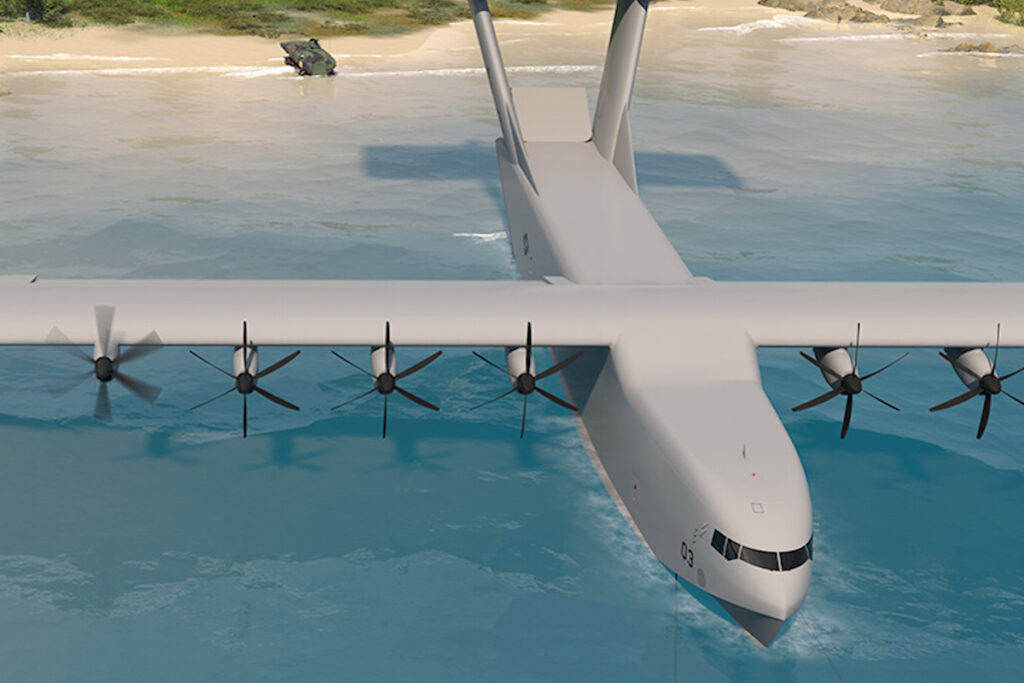The US Department of Defense, through the Defense Advanced Research Projects Agency (DARPA), selected, on May 9, 2024, Aurora Flight Sciences to continue work on the development of a new generation seaplane with the capacity to carry up to 100 tons of payload.
Virginia-based Aurora Flight Science will receive $8.3 million under a cost-plus-fixed-fee contract within the framework of the Pentagon’s Liberty Lifter program.
The Liberty Lifter program aims to develop a seaplane capable of, both, long distance flight at low altitudes and sustaining flight at 10,000ft at speeds superior to those of existing platforms. It must also keep costs low by using low-cost manufacturing techniques and materials currently used in the naval industry.
In 2023, two contenders submitted their proposals to the Pentagon: General Atomics and Boeing-subsidiary Aurora Flight Sciences.
The latter is now to continue the development of its concept, which will undergo a Preliminary Design Review in early 2025. The target date for the first flight is late 2027 to early 2028.
Growing geopolitical tensions along the Pacific Ocean rim have prompted a renewed interest by the US military in seaplanes and ground-effect vehicles to support amphibious and seaborne operations.
In this regard, REGENT, a startup based in Rhode Island developing a new family of ground-effect vehicles, has also been collaborating with the US Marine Corps and US government agencies to evaluate military uses for its technology.

